Introduction
The National Disability Insurance Scheme Amendment (Management of Funding and Plan Management) Rules 2025 (Cth) (“the amendments”) commenced on 4 March 2025.
They amend the National Disability Insurance Scheme (Management of Funding) Rules 2024 (“the funds management Rules”) to provide more detailed guidance on the discretion of the National Disability Insurance Agency (“the Agency”) in making decisions about a participant’s plan management request made under s 43(1) or s 74(2) [re a child participant] of the National Disability Insurance Scheme Act 2013 (Cth) (“the Act”).
The amendments Rules were made under the authority of s 44(3) and s 74(6) of the Act.
The new Rules outline when the Agency must override the Participant’s choice of plan-management
The starting point (or “general rule”) is that the Agency must accept the plan management request of a participant: s 43(2) and s 73(3) of the Act]. That is, the Agency must accept the participant’s “choice” of plan manager. This is reflected in the title of s 43, namely “Choice for the participant in relation to plan management”.
On the point of “choice”, the “Getting the NDIS Back on Track” amendments to the Act that came into force on 9 October 2024 [1] did not alter the fundamental principle of participant “choice and control” that is reflected in the “principle” provisions of the Act: see “general principles” in s 4(4), s 4(8), para 4(13)(b), s 4(14), paras 5 (a) and (c) and paras 31 (b), (g) and (i).
However, the new Rules then set out the scenarios in which the Agency must override that choice and (in most instances) make the plan funding Agency-managed. These scenarios are described below.
When the participant requests self-management
Pursuant to s 43(3) of the Act, the Agency must override the participant’s choice of self-management and make the plan funding Agency-managed:
- Wholly, if the participant is an insolvent under administration [paras 44(1)(b) and (a)];
- Wholly, if the participant has been convicted of an offence punishable by more than 2 years’ prison, or involves fraud or dishonesty [paras 44 (a) and (aa)];
- To a particular extent, if the Agency is satisfied that self-management presents an “unreasonable risk” to the participant [para 44(1)(b)(i)];
- To a particular extent, if the Agency is satisfied that s 46 (acquittal of NDIS amounts) of the Act would unlikely be complied with if the participant self-managed their plan [para 44(1)(c)].
The words “to a particular extent” above mean that the Agency must manage that part of the plan funds where it is satisfied the “unreasonable risk” or the risk of non-compliance with s 46 exists: paras 43(3)(c) and (d) and 44(1)(b) and (c).
When a plan nominee requests self-management
The Agency must override the choice of a plan nominee that they manage the plan funding and make the plan funding wholly or partly Agency-managed in similar circumstances to a participant requesting self-management: s 43(6) and s 44(2A).
When the participant requests plan-management
The Agency must override the participant’s choice that a registered plan manager manage their plan funding if it is satisfied that choice presents an “unreasonable risk” or the unlikelihood of compliance with s 46. Again, the Agency must make the plan funding wholly or partly Agency-managed: paras 43(3)(c) and (d) and ss 44(2) and (2AA).
When a parent of a child participant requests self-management
Where a parent requests their child participant’s plan be self-managed, the Agency must deny their choice of self-management.
- Wholly, if the parent is an insolvent under administration [para 74(4)(a)];
- To a particular extent, if the Agency is satisfied that self-management presents an “unreasonable risk” to the child participant [para 74(4)(b)(i)];
- To a particular extent, if the Agency is satisfied s 46 (acquittal of NDIS amounts) of the Act would unlikely be complied with if the participant self-managed their plan [para 74(4)(b)(ii)].
When a parent of a child participant requests plan-management
The Agency must also deny a parent’s choice that a registered plan manager manage (wholly or partly) their child’s plan funding if it is satisfied that their nominated plan manager choice presents an “unreasonable risk”: s 74(4A).
S 74 does not expressly mandate the Agency as an alternative funds manager where the Agency has denied a parent’s choice in s 74(4) and (4A) scenarios.
What is “unreasonable risk”?
The amendments insert new “Part 3—Unreasonable risk” into the funds management Rules.
Rule 6 sets out the matters the Agency must have regard to, and not have regard to, in considering whether the requested plan management arrangements present an “unreasonable risk” to the participant.
Matters the Agency must have regard to
Re requests for self management, plan nominee management or parent management of a child’s plan funding: r 6(2),(4) and (5)
(a) whether, and the extent to which, any identified risk could be mitigated by particular supports, safeguards or strategies that are, or will be, included in the participant’s plan and any informal, community or mainstream supports that the participant has in place;
(b) whether, and the extent to which, any identified risk has been mitigated in the past in the manner described in para (a);
(c) the nature of the supports that are, or will be, included in the participant’s plan;
(d) whether, and the extent to which, the participant is at risk of experiencing physical, mental or financial harm and/or exploitation or undue influence;
(e) the participant’s ability or capacity to make decisions or to appropriately manage finances, taking into account any support or assistance the participant is likely to receive to do so;
(f) whether a court or tribunal has ordered another person to manage, wholly or partly, the property or finances of the participant;
(g) any matters raised by the participant that the CEO considers relevant;
(h) any other matters that the CEO considers relevant.
Re requests for plan management: r 6(3)
Factors (a), (b), (c), (g) and (h) above.
Matters the Agency must NOT have regard to
Rule 6(6) sets out the matters the Agency must not have regard to in considering whether the requested plan management arrangements present an “unreasonable risk” to the participant. These are:
(a) the nature of any of the participant’s impairments;
(b) any total funding amount or funding component amount under the plan;
(c) if applicable, the fact that the amount of funding provided under a plan for the participant for a funding period was less than the amount that could have been provided for that period.
Conclusion
The amendments consolidate all the rules about funds and plan management in one set of Rules (the funds management Rules). However, together with the relevant provisions in the Act as amended in October 2024, this area of NDIS legislation has become very complex.
While the policy intent is to protect participants and prevent the misuse of NDIS funds, application of the provisions must also consider participant choice and control, as this remains a fundamental principle underpinning the legislative framework.
[1] National Disability Insurance Scheme Amendment (Getting the NDIS Back on Track No. 1) Act 2024 (Cth)





